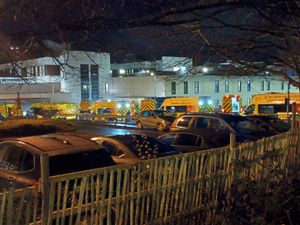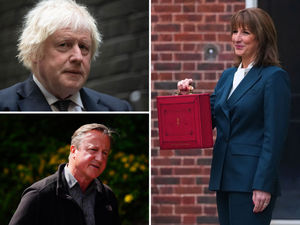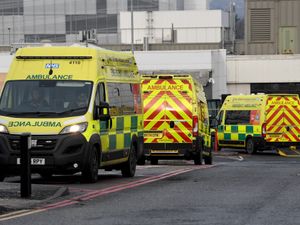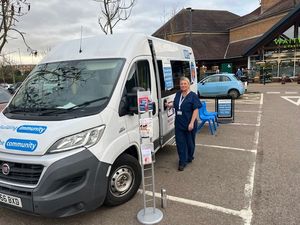National lockdown delay could prove costly - Pat McFadden
Delaying the national lockdown from when scientific advisors initially suggested until now could prove "more costly", an MP has said.
Prime Minister Boris Johnson has announced new national lockdown restrictions for England, which will see everywhere except essential shops and education settings closed for a month.
The Office for National Statistics estimated that 568,100 people in households were infected with coronavirus in the week ending October 23, and government scientific advisers believe it is now too late for a two-week national circuit-breaker to have enough of an effect.
At its September 21 meeting, the Scientific Advisory Group for Emergencies (Sage) suggested immediately introducing a national lockdown lasting between two and three weeks to halt the rapid spread of the virus – dubbed a “circuit break” lockdown.
But the Prime Minister appeared to reject the idea when he laid out a tiered system of restrictions.
More Covid-19 coverage:
Now Pat McFadden, the Labour MP for Wolverhampton South East, has said the delay could prove "more costly" as Sage had advised a lockdown immediately take place, five weeks ago.
He said: "We know that Sage advised to do this on September 21 which is five weeks ago and Keir Starmer called for it weeks ago too and the Government dug its heels in and ministers were adamant they wouldn't do this and now they're having to change course.
"Not only does Sage recommend the circuit breaker, but it also said the sooner we do this the better, so in delaying for five weeks and having a series of fights with local mayors abut the tiered restrictions, the Government is now having to introduce this when the situation is much more difficult than it was and the delay could be more costly.
"There was no good reason to reject it five weeks ago, doing it now could be more costly."
And John Spellar, Labour MP for Warley, said the failure to produce a proper test and trace system is "disastrous".
He said: "People ought to be looking at it area by area and within the borough.
"This is why the failure to produce a proper test and trace system is disastrous, it's taking a long time to get samples analysed compared to other countries and then track down how it's spreading and to whom.
"Essentially we have to be looking at international experience and what's happening with the resurgence of the virus but we have to be looking at jobs for so many people."
Councillor Patrick Farrington, the Conservative leader of Stafford Borough Council, said there will be more economic pressures for local authorities.
He said: "The message I would give is that it has to be continually reviewed, it has to be based on the scientific advice.
"Everyone will have to pull together to get through it.
"My staff and my officers have worked jolly hard to help communities and deal with the extra pressures and the message that was given from the Government was don't worry you get on with it and we'll see that you're alright, so there are more economic pressures in local authorities.
"Local authorities and local communities are working very hard to pull together but central Government must try its best to make sure that people are financially able to carry on because there are some that are really being hit by this."
The proposed restrictions have led to fresh calls for more financial help for affected businesses, as the furlough scheme closes and is replaced by the Chancellor’s Job Support Scheme (JSS).
Kate Nicholls, chief executive of UK Hospitality, said a national lockdown would be “absolutely devastating” for the industry and called for the sector to receive “significant additional help in order to get through this”.




